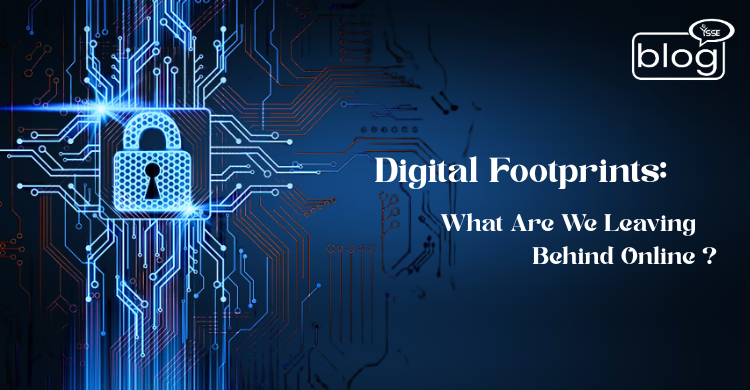So, how was your day? Seems like a usual question, right? But what is your answer to this?
Today, our lives are evolving around the updated status of timelines, liked posts, Insta reels, and Google searches. These are the parts of this trail, a modern life, a glimpse of our digital footprints.
We all have our devices, access to social media, and activities on our accounts regularly. But what about the virtual alleyways of the internet? We all leave our shadows behind, knowingly or unknowingly. What if those shadows of ours are followed, distorted, or weaponized? Have you ever thought about our footprints on this invisible world that can reveal who we are, where we’ve been, and even what we might do next?
In Bangladesh, where mobile phone and internet access use are growing rapidly, cybersecurity and proper legal help seem to be a luxury for grassroots people, especially for teenagers and women. So, what are you thinking now? Is it very difficult to understand the aspects of our digital presence and the concerns of our footprints? Let’s find out.
🔇 Where Vulnerability Meets Silence: A Bangladeshi Context
Let me give some bookish speech, kinds and all, about digital footprints. The evidence that we leave behind, like our social media posts, photos, comments, emails, videos, and online purchases, is our active footprints. On the other hand, passive footprints are the silent and invisible evidence, like location data, browsing history, cookies, IP addresses, and the metadata that we never see or leave behind unconsciously.
The apps on our phones or websites collect this information constantly. Sometimes we all become surprised. Why does the newsfeed always present the relatable item? Are they reading our minds? No, they’re not; the game of algorithms is far more dangerous here.
In our country, there are almost 78 million internet users on many platforms like Facebook, TikTok, Instagram, and messaging. Whatever, in this country, connectivity and risk spread together. And it becomes more horrible when the society worships patriarchy, and all discussions here revolve around digital harassment and are brushed aside or stigmatized.
The culture of victim blaming and lack of education is the core of this dangerous vacuum. Here, women and girls need to, or more specifically, are ‘told to’ stay silent. Sometimes they need to hide, as their activity or visible presence is prohibited. But my concern is not the visibility; my concern is roaming around the vulnerability, the vulnerability without protection.
💔 From Posts to Pain: Harassment with Real Consequences
Do you want to understand the depth of this crisis? Let me show you some real stories, and you can understand the real harm of this vacuum.
- 📸 2023 Incident: Some private photos of a female university student were leaked by her ex-boyfriend after he refused to continue the relationship. Those pictures were doctored and shared on social media to humiliate her. She was forced to drop out of her courses and faced backlash and media trials.
- 🎭 Rajshahi Case: A fake account pretending to be a boy from a schoolmate of teenage girls started poking them online and sending intimate messages. Later, these messages were used to blackmail them.
- 📱 Sylhet 2024: A popular content creator had her photos and name used across several Facebook accounts to promote dating scams. Despite filing legal complaints, no action was taken.
All of these are small and isolated incidents that I collected from social media posts or newspaper clippings. But what the statistics show is more dangerous. In Bangladesh, more than 85% of victims of social media harassment are women.
📖 Digital Literacy as a Feminist Issue
After knowing all of these cases, it is very usual to say that cybersecurity is not just technical; it is social, political, and, most importantly, personal. Society loses its voice whenever a woman is forced offline because of threats, trials, and harassment. We lose our future leaders and backbone whenever a teenager is bullied into silence.
It is time to teach our girls how to avoid harm and maintain confidentiality on the internet. The understanding of digital literacy must be woven into our schools, our homes, and our national conversations. Until then, our digital footprints will continue to carry not just data, but danger.
🔗 To read these types of blogs, please click here.
✍️ Writer
Arpita Das
Intern at Content Writing
Youth School for Social Entrepreneurs.

